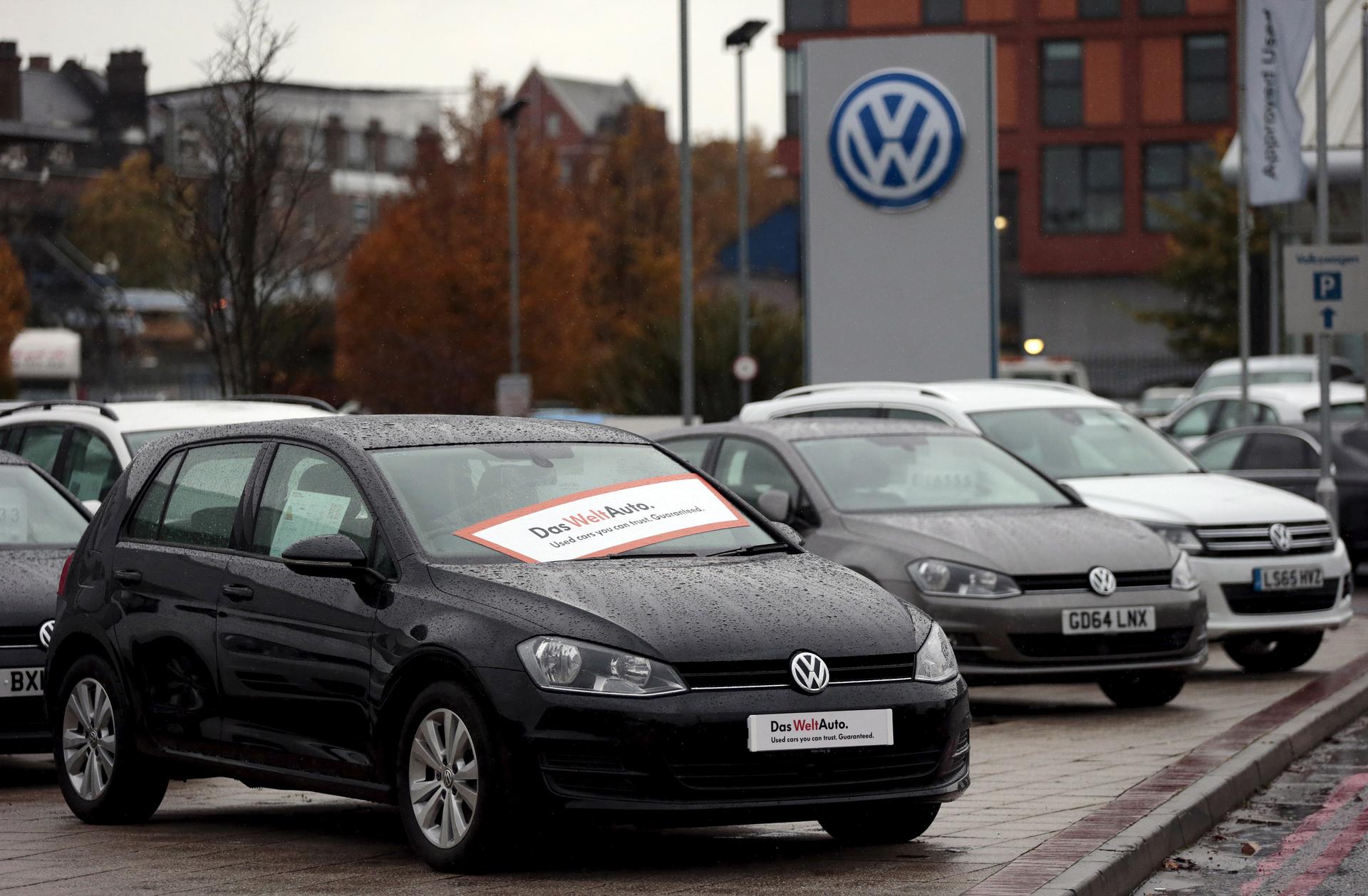One year later, five things to note about the Volkswagen scandal
Volkswagen cars are parked outside a VW dealership in London, Britain, on November 5, 2015.
It has been a year since Volkswagen admitted to fitting millions of cars with cheating software to dupe emissions tests, plunging the German auto giant into one of the biggest scandals ever to hit the industry.
Billions of dollars in compensation later and mired in legal woes and mass recalls, Volkswagen is still nowhere close to drawing a line under the nightmare.
Here's what you need to know on the first anniversary of "dieselgate."
What's it all about?
US authorities on September 18 accused VW of installing so-called "defeat devices" in nearly half a million cars between 2009 and 2015 to make them seem less polluting than they were.
Investigators found that some cars spewed out up to 40 times more harmful nitrogen oxide — linked to respiratory and cardiovascular diseases — than legally allowed.
Volkswagen confessed that 11 million diesel vehicles worldwide were fitted with the manipulating software, sending the carmaker's shares into a tailspin.
Most cars affected bear the Volkswagen brand, but vehicles made by other VW group companies such as Audi, Seat and Skoda were also equipped with the software.
VW's chief executive Martin Winterkorn offered his "deepest apologies" to the public but denied any personal wrongdoing. He resigned on Sept. 23.
What are they doing to fix it?
After its admission, Volkswagen announced a global recall of all affected vehicles to fix the emissions manipulation.
It also offered to buy back cars and pay compensation — but only to owners in the United States, much to the annoyance of EU authorities.
VW took a major step towards resolving the dispute in the US in June when it agreed to a massive $14.7-billion settlement.
The deal will see the auto giant refit or buy back some 480,000 VW and Audi cars with 2.0-liter diesel engines. Owners of those cars will also receive up to $10,000 each in cash compensation. Some of VW's money will also go towards environmental projects.
The carmaker still needs to resolve a slew of other US complaints and remains barred from selling diesel vehicles in the country.
How bad is it for Volkswagen?
The financial hangover has been pretty bad, and could get worse.
Aside from ongoing litigation in the United States, VW is facing probes and lawsuits around the world, including in Germany, France, and South Korea, setting the stage for more fines and compensation demands.
The company says it has set aside around $20 billion to cover repairs, buy-backs, and legal costs, but experts believe the final bill will be much, much higher.
Dragged down by such costs, the group reported a $1.8-billion-dollar net loss last year, its first in over two decades.
VW is also under growing pressure from the EU to offer compensation to European customers. While the European Commission cannot itself take any action, it last week urged member states to crack down on the company for violating consumer protection laws.
VW says it has no legal obligation to fork out cash for European drivers and insists that doing so could bankrupt the company, a major employer in several EU countries.
Have other carmakers been cheating?
Tests carried out in the wake of the scandal found that diesel engines by other carmakers were also more polluting on the road than during testing. But there is no formal indication any of them installed cheating software.
Rather, the manufacturers in those cases said regulations allowed deactivation of emissions controls in certain conditions to protect the engine.
Still, German makers Audi, Mercedes, Opel, Porsche, and Volkswagen decided this year to voluntarily recall around 630,000 cars to fix emissions irregularities.
There's also a spat brewing between Germany and Italy after Berlin accused Fiat-Chrysler of using defeat devices in some vehicles, strongly denied by the firm and Italian authorities.
How have customers reacted?
With remarkable sangfroid. VW group sales have plummeted in the US — down nearly seven percent this year — but European drivers appear to have largely shrugged off the controversy.
The VW group maintains the largest share of the European car market, around 25 percent, and Audi and Skoda drove it to higher sales in the first eight months of 2016 than over the same period last year.
In figures released on Friday, the group said global sales of its vehicles increased by 1.8 percent between January and August compared with the same period in 2015.
But the US saw 30,000 fewer own-brand cars marked with the famous circular VW logo drive off dealers' lots — a fall of 13 percent.
We want to hear your feedback so we can keep improving our website, theworld.org. Please fill out this quick survey and let us know your thoughts (your answers will be anonymous). Thanks for your time!
